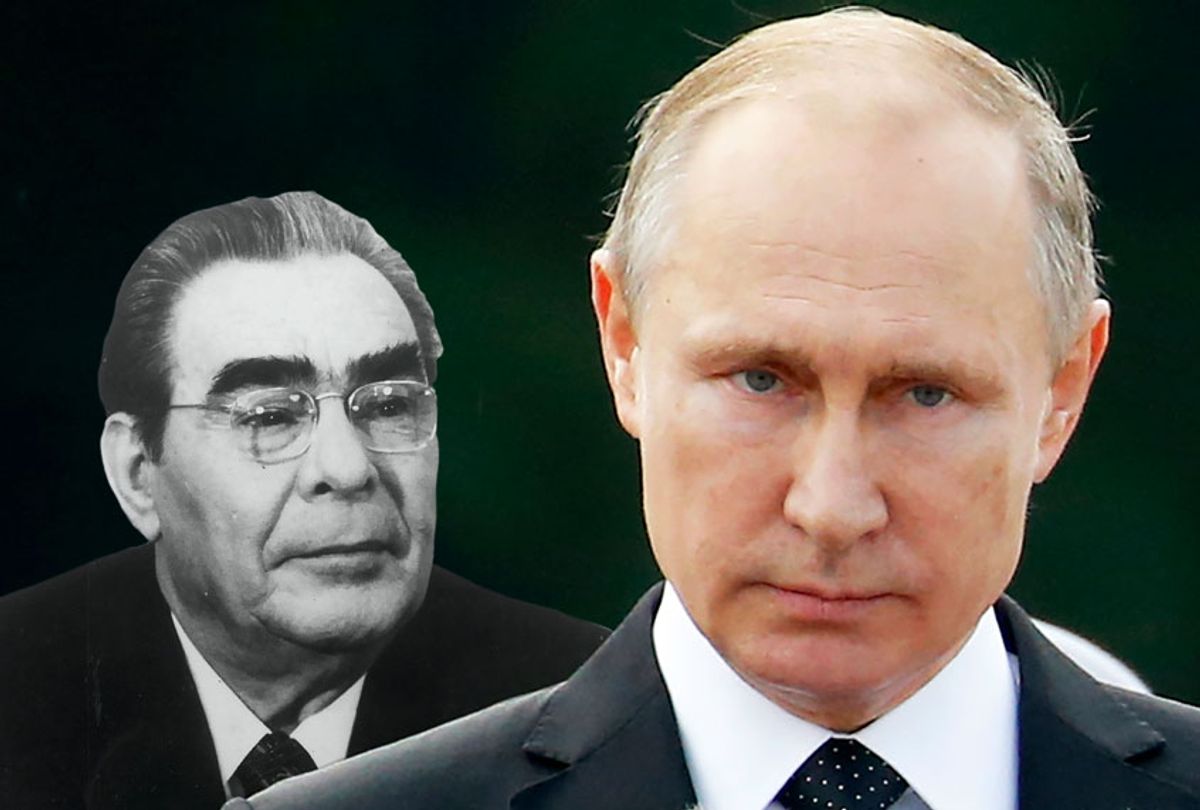The age structure of the U.S. political leadership cannot be described by any other word than as a gerontocracy. Despite Donald Trump's rather youthful age of 73, he entered office as the oldest man to become U.S. President to date.
House Speaker Nancy Pelosi is about to turn 80, Senate Majority Leader Mitch McConnell is 78.
The two remaining Democratic presidential candidates are Joe Biden and Bernie Sanders, 77 and 78 years of age, respectively.
A bizarre, but fitting comparison
If you look around the world, and indeed into modern history, to find an example of another country that used to be governed by a coterie of political fossils, you need to look no further than the old Soviet Union.
From around the mid-1970s onward, General Secretary Leonid Brezhnev and the entire Soviet Politburo were looking like death warmed over.
By the early 1980s, Defense Minister Andrei Grechko was 78, Foreign Minister Andrei Gromyko was 73, Prime Minister Alexei Kosygin was 77, President Nikolai Podgorny was 73 and ideology chief Mikhail Suslov was 79.
Roughly half of all Party leaders were in that age group, led by someone named Arvid Pelse who was born in the 19th century and was 83.
Since life expectancy for Russian men was at the time in the low 60s, they must have seemed like real dinosaurs for the people they ruled. And yet, they continued to soldier on while the country was crumbling around their ears.
Trump: An American Brezhnev?
With all the endless, headline-grabbing news created by Donald Trump every day, one core fact has gotten out of focus. In November 2016, Trump became the oldest person elected U.S. president.
Trump's health is an enigma, shielded from the public by an army of sycophants. Yet, he is just as overweight as Brezhnev was at his age. He keeps sniffing, he talks like an addict and his junk food diet doesn't inspire much confidence about his cardiovascular condition.
Trump has even started to slur his words — just as Brezhnev did around Trump's age.
By age 76, Brezhnev was dead. Now, of course, health circumstances in the former Soviet Union were far tougher even for the country's Communist elite than for wealthy Americans today.
But what is relevant here is that, after Brezhnev's death, it came out that he had been plagued by a variety of health problems, including addiction to tranquilizers. Of course, while he was alive, Brezhnev's health had been a carefully guarded state secret.
Why does the U.S. have a political gerontocracy?
At first glance, it may seem strange that America is run by a Brezhnev-age gerontocracy. The United States leads the world in high-tech and, spurred by the country's own innovation establishment, the technology revolution is moving forward at breakneck speed. U.S. society is also relatively young and dynamic.
Why then is the country run by a cohort of, mostly, very old men?
The answer is simple. Just as was the case in the Soviet Union, the age of American political leaders reflects the long-time deterioration of the U.S. political system, as well as the paucity of new ideas.
It bears recalling that France is by now almost onto its sixth Republic, while the United States teeters along with the political structures and precepts formulated at the time of the passage of the U.S. Constitution in 1787.
The U.S. political system: In a state of terminal paralysis
For all the general resiliency of its economy, America's political system is in a state of terminal paralysis. Seemingly commonsensical measures that present no problems in other rich industrial societies remain extremely contested.
Issues such as keeping guns out of the hands of mass murderers, providing health care to all citizens, reducing the crushing student debt burden and allowing women to control their bodies are the Western essence of modernity.
However, the Republicans resolutely stand to fight tooth and nail on any of these matters. They are thus the equivalent of the Brezhnev crew in the late-stage Soviet Union. It, too, fought very hard to uphold the completely outdated idea of Soviet Communism decades after it had passed its sell-by date.
Like the late-stage Soviet Union
Structurally, the situation in today's United States is bizarrely similar to that in the late-stage Soviet Union.
The top 10% have plenty of resources to handle the recession that is coming, but the rest are living hand to mouth. The rest of the population, a significant share of which has long held on by their fingernails, lives in rising despair.
Conclusion
Due to the unforeseen event of the COVID-19 outbreak, the political stalemate that has so far prohibited any sensible updating of the U.S. political economy and economic power structures is now becoming glaringly obvious.
That was what happened to the Soviet economy. Its sudden demise seemingly overnight came as a huge surprise to everybody — not least to party apparatchiks.
When the Soviet Union became a gerontocracy, America easily won the Cold War. Now that it has itself turned into a Brezhnev-style gerontocracy, it may be about to lose the peace.




Shares